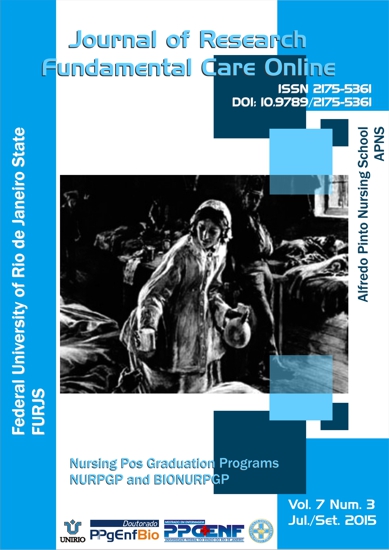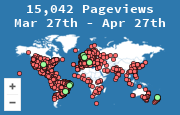Motivations for the treatment of crack users in a therapeutic community
DOI:
https://doi.org/10.9789/2175-5361.2015.v7i3.3009-3019Palavras-chave:
Drogas Ilícitas, Coacaína Crack, Centros de Tratamento de Abuso de Substâncias, FamíliaResumo
Objective: Knowing the motivation of crack users for treatment in hospital environments. Method: Descriptive and qualitative search, using the design of some cases. Twenty male crack users, aged over 18 years old, hospitalized in a Therapeutic Community in Southern Brazil, were interviewed. A semi-structured interview was used and the data were analyzed by their thematic content. Results: Were found three categories that reflect the treatment motivations: perception of the crack harmful consequences; the compulsive use of drugs as the treatment initiation; and, the family participation looking for a treatment. Conclusion: Significant events (turning points) favored the interruption of the crack use and the family assumed a very important place to the users behavior in relation to the use of the drug, exclusively. Descriptors: Street drugs, Crack Cocaine, Substance Abuse Treatment Centers, Family.
Downloads
Publicado
Como Citar
Edição
Seção
Licença
TERMO DE TRANSFERÊNCIA DE DIREITOS AUTORAIS
Transfiro os direitos autorais deste artigo para a Revista de Pesquisa Cuidado é Fundamental - Online - RPCF, assim que ele for aceito para a devida publicação eletrônica. Os direitos de autor incluem o direito de reproduzir na íntegra ou em parte por qualquer meio, distribuir o referido artigo, incluindo figuras, fotografias, bem como as eventuais traduções. O autor pode ainda, imprimir e distribuir cópias do seu artigo, desde que mencione que os direitos pertencem a RPCF. Declaro que este manuscrito é original, não tendo sido submetido à publicação, na íntegra ou em partes para outros periódicos online ou não, assim cmmo em Anais de eventos científicos ou capítulos de livros.






























